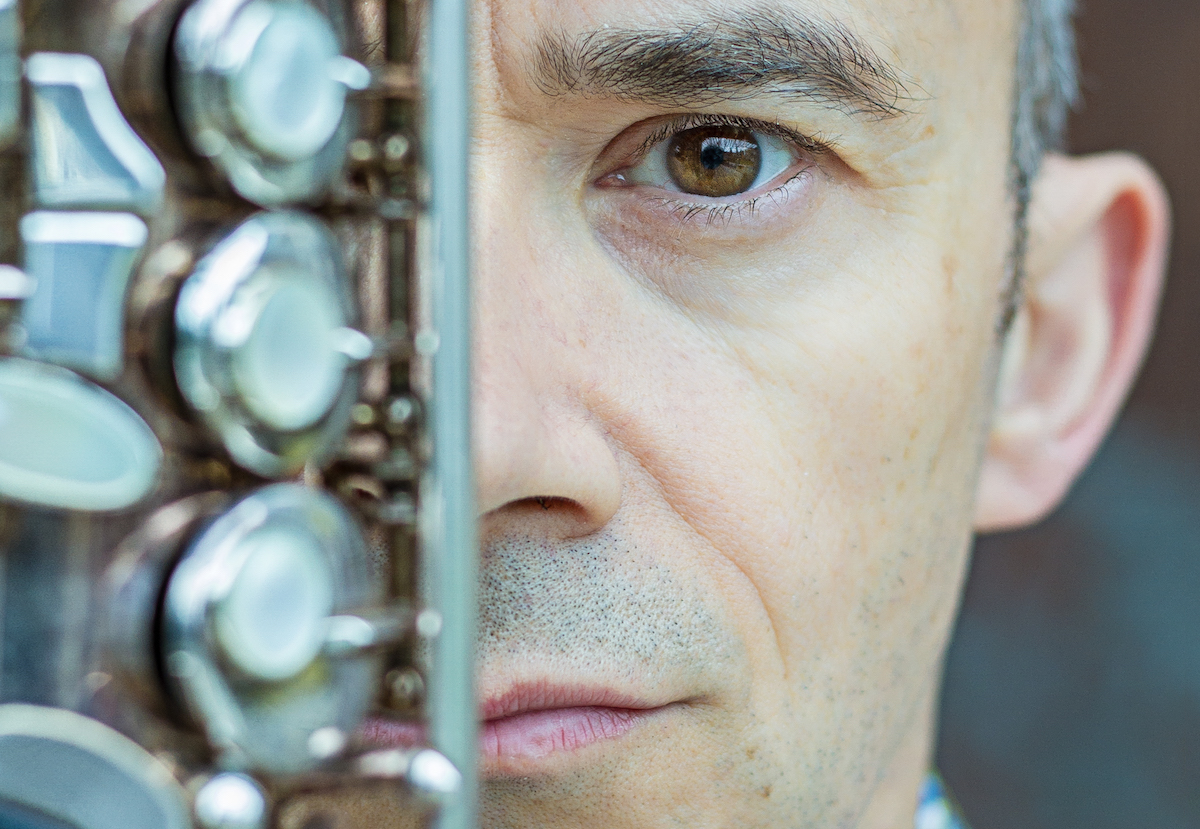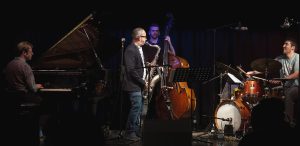Julian Argüelles is an experienced composer, bandleader and multi-instrumentalist, whose recently released album Tonadas, has been met with universal acclaim. The 52-year-old cut his teeth playing in large ensembles such as Loose Tubes and The Carla Bley Big Band, but has since proven himself to be a capable quartet leader, with an expanding collection of intricate and heartfelt compositions. His current group features accomplished pianist Ivo Neame of Phronesis fame, alongside double bassist Sam Lasserson and drummer James Maddren, both of whom have been with Argüelles since 2015’s Tetra. Recognising its Spanish vocabulary, we were keen to ask Julian about how his Spanish roots fed into his latest record. Ahead of his show at Band on the Wall on 2nd September, he gladly answered those questions, as well as sharing his passions away from music.
You recently released your new album Tonadas with Edition records. What was it like working in the studio with your bandmates, how important was your pre-production and have you been pleased with the response from fans and critics thus far?
JA: ‘It was a lot of fun recording in the studio. We had two days which is a kind of luxury, and we were in Italy, so what’s not to like? Recording feels like a different experience to live performance, so changes have to be made to the arrangements and forms of each of the tracks we recorded. It can’t be organised until you are in the studio and hear the recorded material. Yes, I have been happy with the response from critics, it seems very positive.’
You drew influence from your Spanish roots in creating these new compositions. For those unfamiliar with Spanish music and culture, what are the key characteristics and how have they shaped this set of compositions?
‘There are two types of Spanish music I drew influences from. The first is flamenco music; music from Andalusia. It’s music I’ve loved for a long time. For me the main characteristic is the emotional depth of the music, there are other technical musical features of the music, but the emotional quality is the thing I enjoy most. The other musical type is the folk music from Spain. Each region has quite distinctive musical flow forms, all very beautiful.’
Your soprano playing on Alfama is a delight. When you compose a piece such as this, at what point during the process do you decide which saxophone to use? Knowing the range of each instrument, is the decision something you’re aware of from the very beginning?
‘Usually I write a piece of music on the piano, and I’m not thinking about the limitations or range of an individual saxophone, just to finish a piece I’m happy with. Instrumentation choices are made once the composition is finished.’
Who were the most important musical mentors for you, as a developing musician?
‘I had loads. First it was musicians from the recordings that influenced me as a kid: including Bird, Coltrane and Keith Jarrett. My brother had a big influence too [jazz drummer Steve Argüelles]. Later on it was musicians I played with who I hugely admired, such as Kenny Wheeler, John Taylor, Chris MacGregor and musicians associated with the band Loose Tubes.’
When you’re aren’t focussed on music and need to clear your mind, what are your favourite activities and ways to relax?
‘I like cooking, reading and, strangely, I quite enjoy a DIY project every now and again.’
Your work has taken you to various European countries during recent times. What have been the highlights of your travels and do those locations and cultures inform the creative decisions you later make?
‘I love travelling. Right now I’m writing from Perth, Australia. I’ve travelled a lot around Europe and at the moment my home is in Austria. There are great musicians everywhere, I get creative ideas, both writing and improvisational, from all over.’



